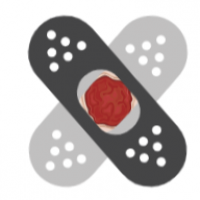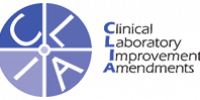5% of patients with diabetes mellitus develop foot ulcers with 1% resulting in amputation
State of the Art Wound Pathogen Detection
Wound healing is a complex process in which the skin and deeper tissue repairs itself after injury. The healing process is prone to interruption or failures leading to the formation of non-healing chronic wounds. Factors that contribute to non-healing chronic wounds are diabetes, venous or arterial diseases, infection, and metabolic deficiencies of old age. Traditional culturing methods take days and in the case of slow growing bacteria, it can take weeks to get results. This makes the diagnosis a painful and long process during which the wound could potentially become worse and could lead to amputations in some severe cases.
The Absolute Genomics Wound InSITE panel is a comprehensive RT-PCR panel with 22 bacterial and fungal targets. In addition to pathogen diagnoses, this panel also allows the detection of antibiotic resistance gene markers. The panel utilizes a highly sensitive and specific RT-PCR assay for detection of multiple pathogens and antibiotic resistance in a single PCR workflow. This highly actionable information is provided in a simple, efficient report with the best available drug choice.
Clinical Need :
- Risk factors for wound infections include diabetes mellitus, vascular diseases, immunosuppression, and old age
- 35% of persons receiving community care have a chronic wound
- Nearly 7 million people in USA have a chronic wound. These include pressure ulcers, diabetic foot ulcers, arterial and venous stasis and surgical wounds.
- An unhealed wound on the foot or leg can lead to infection and severe complications such as amputation
- The rate of amputations increased by 50% during COVID-19 suggesting delay in infection diagnosis and treatment
- This test helps in determining appropriate therapy for suspected polymicrobial infections and evaluating treatment options for stagnant, non-healing wounds
- Selecting appropriate treatment for suspected anaerobic or fungal infections
- Results in better treatment, reduced medical costs, reduced length of stay for hospitalization, and reduced mortality rate
- Traditional culturing methods have turnaround times of days to weeks while our PCR turnaround time is under 24 hours for both pathogen and antibiotic resistance detection
- Rapid RT-PCR results can reduce cases of septicemia and amputations
~15% of older adults in the U.S. suffer from chronic wounds



ABx Advantage
The Absolute Genomics ABx Advantage gene panel is designed to detect major classes of antibiotic resistance. This panel can identify the presence of specific resistance genes that are involved in drug inhibition. The Absolute Genomics ABx Advantage gene panel has 11 antibiotic resistance genes belonging to amino glycosidea β-lactama fluoroquinolonea macrolidea tetracyclinea vancomycina and multi-drug resistance classifications. The data is used for providing antibiotic resistance stewardship via Arkstone Medical Solutions. The OneChoice report powered by Arkstone Medical Solutions for the ABx Advantage gene panel converts PCR data into simple interpretations for physicians to help them make better treatment decisions. This technology is a combination of softwarea artificial intelligencea and human expertise.
- The antimicrobial report contains a unique ArkScore to help prescribers make informed decisions.
- The antimicrobial decision engine combines machine-learning artificial intelligence with decades of deep infection disease expertise to guide physicians to a singular treatment regimen that targets the most relevant infectiona with the lowest risk to the patient.
- ArkScore describes the level of antimicrobial resistance expressed in organisms.
- ArkScore provides the most effective treatment with the least risk of adverse events resulting in the reduction of unnecessary use of broad-spectrum antibiotics
Extensive Panel List

Bacteria
- Enterobacter cloacae
- Enterococcus faecalis
- Enterococcus faecium
- Escherichia coli
- Klebsiella pneumoniae
- Pseudomonas aeruginosa
- Staphylococcus aureus
- Enterobacter aerogenes

Fungi
- Candida parapsilosis
- Candida tropicalis
- Candida albicans
- Candida glabrata
- Trichophyton mentagrophytes var. interdigitale
- Trichophyton mentagrophytes var. menta
- Trichophyton rubrum
- Trichophyton tonsurans
- Trichophyton verrucosum

Viruses
- HSV1
- HSV2

Wound Antibiotic Resistance Targets
- ESBL resistance
- Carbapenem resistance
- Methicillin resistance
- Vancomycin resistance
- Sulfonamide resistance

Bacteria
- Enterobacter cloacae
- Enterococcus faecalis
- Enterococcus faecium
- Escherichia coli
- Klebsiella pneumoniae
- Pseudomonas aeruginosa
- Staphylococcus aureus
- Enterobacter aerogenes

Fungi
- Candida parapsilosis
- Candida tropicalis
- Candida albicans
- Candida glabrata
- Trichophyton mentagrophytes var. interdigitale
- Trichophyton mentagrophytes var. menta
- Trichophyton rubrum
- Trichophyton tonsurans
- Trichophyton verrucosum
lorem ipsum Panel List
- XYZ
- XYZ
- XYZ
- XYZ
- XYZ
- XYZ
- XYZ
- XYZ
- XYZ
- XYZ
- XYZ
- XYZ





